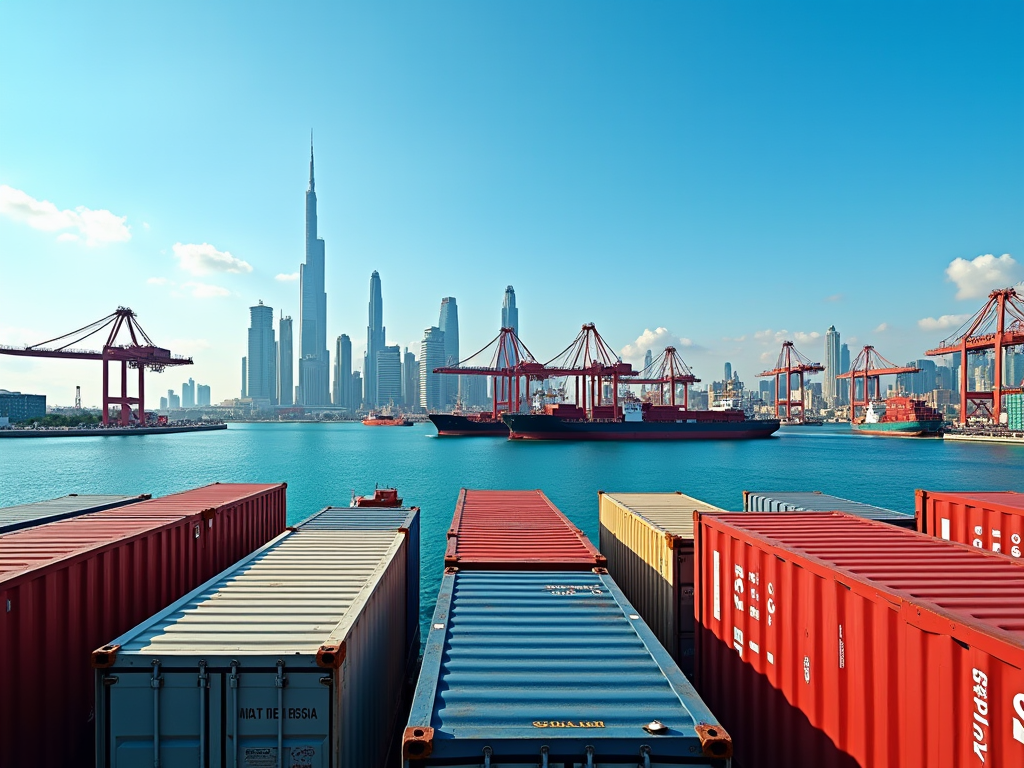
Unlocking Opportunity: Your Guide to Starting an Import-Export Business in Dubai
Starting an import-export business in Dubai offers a wealth of opportunities due to its strategic location, thriving economy, and business-friendly regulations. This article serves as a comprehensive guide providing essential insights into launching your import-export venture in one of the world’s most dynamic trading hubs.
The Advantages of Setting Up in Dubai

Dubai has become a global center for trade, largely due to its extensive infrastructure, including world-class ports and airports. The following aspects make Dubai an attractive destination for importing and exporting businesses:
- Strategic Location: Serving as a bridge between East and West, Dubai facilitates international trade.
- Robust Economy: The emirate’s economy continues to grow, driven by diversification and investment.
- Business-Friendly Environment: Dubai is known for its free zones and minimal restrictions on foreign ownership.
- No Sales Tax: The implementation of a value-added tax (VAT) applies only to certain goods and services.
- Infrastructure: Its transport and logistics infrastructure is among the best in the world, making it ideal for trade.
Steps to Start Your Import-Export Business

Starting your import-export business in Dubai involves several key steps. Here’s an actionable roadmap to guide you through the process:
- Market Research: Identify viable markets for your products and analyze competitors.
- Business Plan: Develop a clear business plan outlining your target market, operations, and financial projections.
- Choose Your Products: Decide what you want to import or export, focusing on products with high demand.
- Register Your Business: Obtain a trade license from the Dubai Department of Economic Development (DED) or relevant free zone authority.
- Compliance and Regulation: Familiarize yourself with customs regulations, import-export documentation, and quality standards.
Registration is a critical aspect of starting an import-export business. In Dubai, you will need to determine whether your business will be located outside the free zones or within one. Consider the following licenses and registrations:
- Trade License: This is mandatory for conducting business activities legally.
- Export/Import License: Required for companies involved in the shipment of goods across borders.
- Customs Registration: Registering with the Dubai Customs for clearance is essential.
- Special Permits: Certain goods may require additional permits or compliance with local regulations.
Financing Your Import-Export Venture
Securing finances is crucial for any startup. Here are potential financing options tailored for import-export businesses:
- Personal Savings: Utilize your personal funds to bootstrap your business.
- Bank Loans: Approach banks for specific business loans designed for startups.
- Investor Funding: Seek investors interested in capitalizing on import-export opportunities.
- Government Grants: Explore available grants for new businesses in Dubai.
- Crowdfunding: Consider platforms where you can gather funds from multiple sources.
Building Relationships in the Market
The success of an import-export business largely hinges on networking and establishing strong relationships with suppliers, buyers, and other stakeholders. Here are tips to foster these connections:
- Attend Trade Shows: Engage in local and international trade shows to meet potential partners and customers.
- Join Business Associations: Network with local business chambers and associations.
- Utilize Online Platforms: Leverage LinkedIn and other platforms to connect with industry professionals.
- Consult Industry Experts: Work with consultants who have local market knowledge.
Conclusion
Starting an import-export business in Dubai is an exciting venture brimming with opportunities. By leveraging the city’s strategic location, diverse customer base, and business-friendly climate, entrepreneurs can establish a successful enterprise in international trade. Following the outlined steps for starting your business, understanding regulations, securing financing, and building relationships will adequately prepare you for this dynamic industry. Success in the import-export space is achievable with the right strategy, dedication, and market insight.
Frequently Asked Questions
1. What type of business license do I need to start an import-export business in Dubai?
You will need a trade license from the Dubai Department of Economic Development (DED) and an export/import license depending on the nature of your business.
2. Are there benefits to establishing my business in a free zone?
Yes, free zones offer benefits like 100% foreign ownership, tax exemptions, and simplified customs procedures, making it easier to operate your import-export business.
3. How can I conduct market research for my products?
You can analyze industry reports, conduct surveys, attend trade shows, and study competitors to understand market demand and trends.
4. Is it necessary to hire a local agent in Dubai?
While not mandatory, hiring a local agent can facilitate navigation through local regulations and help with market entry strategies.
5. What are common challenges faced in import-export businesses?
Common challenges include understanding regulatory requirements, dealing with fluctuating currency values, navigating customs issues, and managing logistics efficiently.


